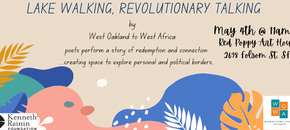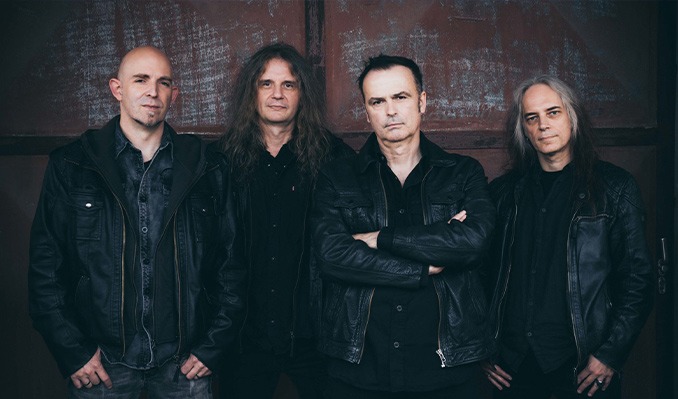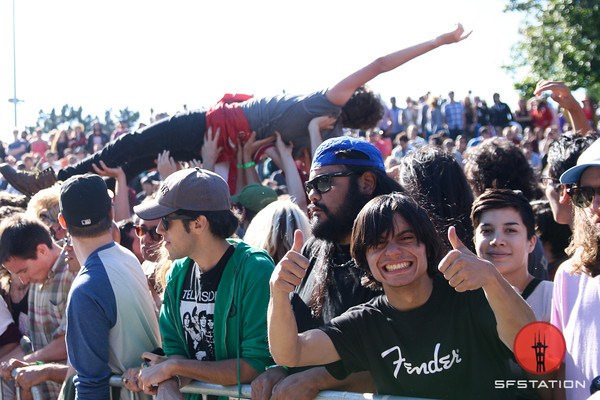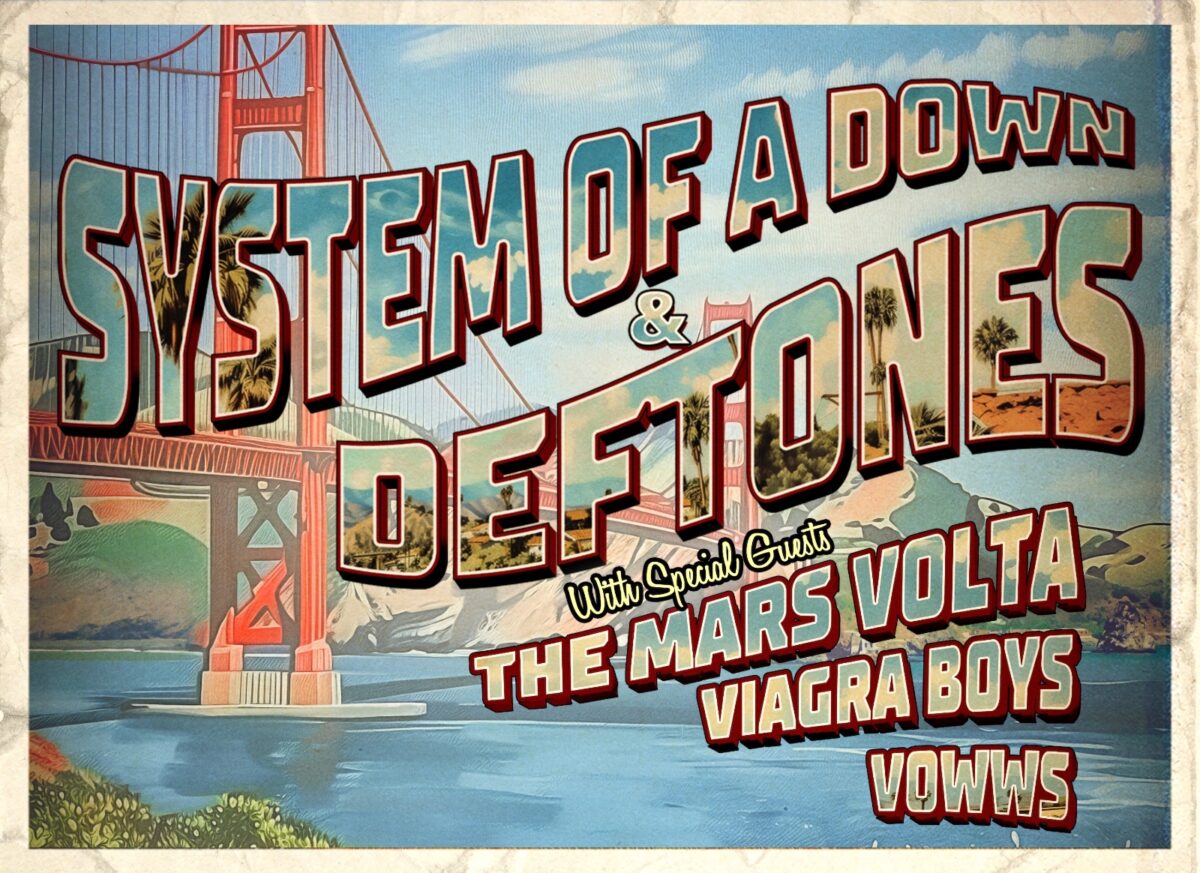Oakland’s ‘Omni Commons’ Connecting Culture, Collectives & Community in a Big Way
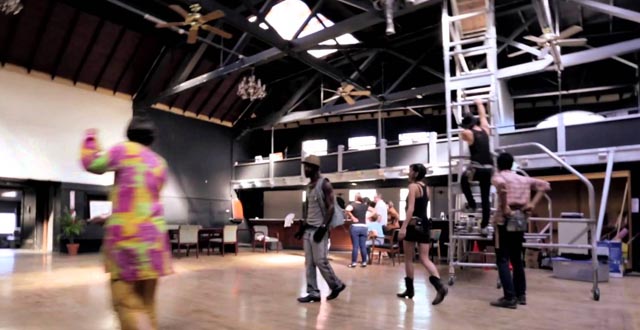
Unfortunately, these days, it’s rare to not hear about another San Francisco creative space that’s in danger of disappearing. It’s an all too familiar story for many artists across the Bay, as studios and other venues for radical experimentation have slowly folded in the wake of market forces that favor technology and expansion. Yet, there’s still a handful of collectives that have found success against the odds stacks against them. Adapting and innovating all along the way, Omni Commons is one such model of what can happen when many communities come together as one.
Omni Commons sits on a cozy, mostly residential stretch of Shattuck Avenue in North Oakland. Its unmarked exterior is still easy to overlook, despite the bevy of blue and white paint on its facade, resembling something you’d likely find traveling through Greece.e
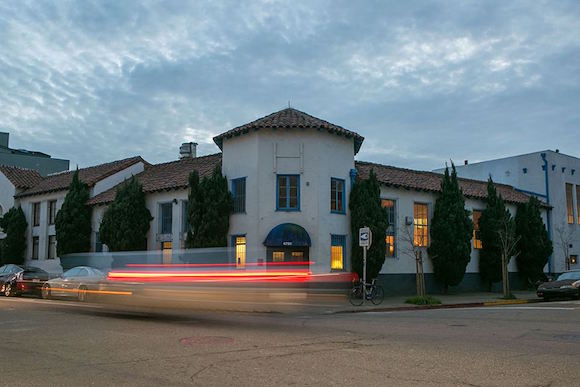 Omni Commons (Photo by Bay Area Public School)
Omni Commons (Photo by Bay Area Public School)
Inside: it’s a limitless hub of ideas made possible by volunteers who support initiatives across everything from food justice and design, to political theory and alternative technology. Its members come from 12 separate organizations that are headquarters at Omni Commons and function throughout the local community.
Its calendar of free events regularly overflows with workshops and meetings. On any one day, you might find a fermentation class or musical rehearsal; on another, a craft session and computer programming tutorial.
They’ve created a mission statement the United Nations might do well to envy. Their unifying credo: to advance the “more equitable commoning of resources and meeting human needs over private interests or corporate profit.”
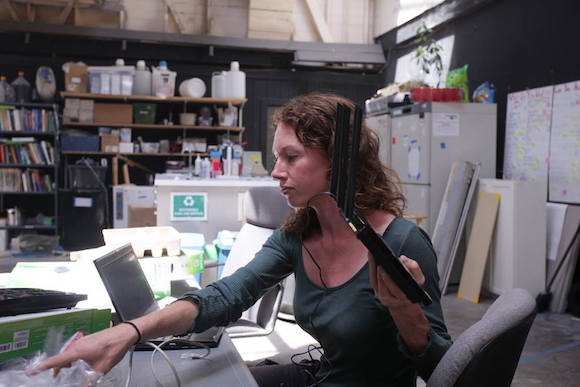 Jenny Ryan at Omni Commons
Jenny Ryan at Omni Commons
Goals like these may have seemed lofty or idealistic a decade ago, but the rise of the “Sharing Economy” has added more than just a new term to their lexicon. Startup companies such as Lyft and Airbnb have normalized intimate experiences—such as sharing a car ride or home with a stranger. This has helped collective ventures to feel much more plausible.
Jenny Ryan, Secretary & Co-Founder of Omni Commons, has been a key element in implementing this mantra in the shared space. She currently spends the bulk of her hours there on accounting, legal paperwork, and archival projects, but also co-authors the newsletters and helps with various building projects and event requests.
It may sound like a lot, but it wasn’t always this easy. In fact, she described the space’s founding back in 2014 as a “winding human chain of sweat labor,” where she got seriously good at pulling all-nighters on a regular basis.
This video gives a good glimpse into Omni. It’s from their 2014 Indiegogo Campaign, which they fully funded.
Ryan likens the structure of Omni to a bicycle: the hubs are representative of the decision-making delegates from each collective, and the wheels are made up of the working groups that toil through the more necessary day-to-day labor. Without the two operating together, the space would be static.
Since there’s never been a more fascinating time to be an entrepreneur, we decided to pick the brain of the very bold and passionate Ryan to learn more about how Omni Commons got its start.
How did the organization first come together?
To best describe the kinship structure of the groups, I’ll give an expedited history: In the summer of 2012, both Sudo Room (a creative community and hackerspace) and the Bay Area Public School (a free university committed to radical politics) began renting two rooms in a building with a shared adjoining large common space. Both projects emerged out of Occupy as collective movement-building initiatives cultivating a culture of radical thought and creative praxis.
Some members had their own projects and would later become founding members of the collectives found within the Omni Commons (such as Timeless, Infinite Light, Backspace Wellness, and OMNIdance). In October of 2013, in a process stewarded by Bay Area Public School and Sudo Room, several organizers from among these different groups began hosting open meetings. Among the topics on the agenda? Finding a new, larger, shared space with the future possibility of collective ownership.
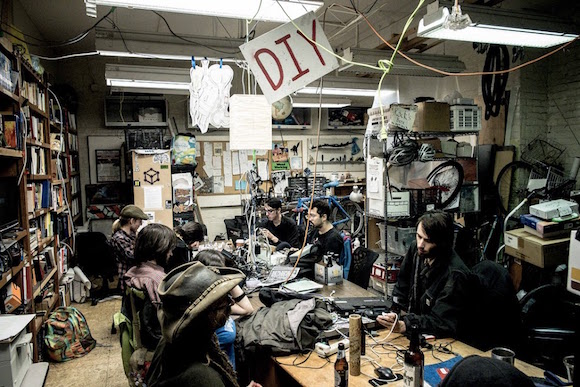 The Sudo Room workspace prior to Omni Commons
The Sudo Room workspace prior to Omni Commons
What ideas or values helped spark its creation?
I’ve been involved with Sudo Room since its first formative meetings in late 2011. I decided to drop out of academia in favor of ‘building’ (rather than writing about) the kind of community autonomy initiatives that might become models or experiments in building sustainable alternatives to the dominant hierarchical and resource-depleting infrastructures currently in existence. I couldn’t abide by any of these models, complicit as they were in hegemonic and hierarchical modalities of power—the last gasps of a dying system rooted in capitalist exploitation, competition and colonialist domination.
This project, while far from utopian in it’s daily lived reality, signifies the promise and possibilities of a more equitable and humane future that creates abundance out of freely-shared resources, uplifts and honors the voices of the silenced and oppressed in a spirit of solidarity, and rapidly implements viable solutions to real problems through the catalyzing power of collective action.
What were some initial challenges moving into the space at its inception?
Moving into such a big and expensive building, figuring out how to equitably share and sustain such a large space was an incredibly stressful, huge gamble and initially we struggled to find enough aligned collectives to share the property with us so that we could even theoretically afford the rent of over $12,000/month. Furthermore, faced with the enormity of the task before us all, many participating collectives left or folded early.
In those first 2-3 years we worked really hard to explore nonprofit and foundation funding sources: individual donors, and banks who might be in a position to assist us with acquisition. Ultimately, we were miraculously blessed by a fairy godmother who donated $1m and lent us $975K at below-market rate to purchase the building, allowing us to finalize the purchase in December of 2016. Also, it likely would not have been possible without having negotiated an Option to Purchase (at a pre-set amount) into our lease back in 2014. While it’s simple enough to state, I’ll just suffice to say: it was complicated.
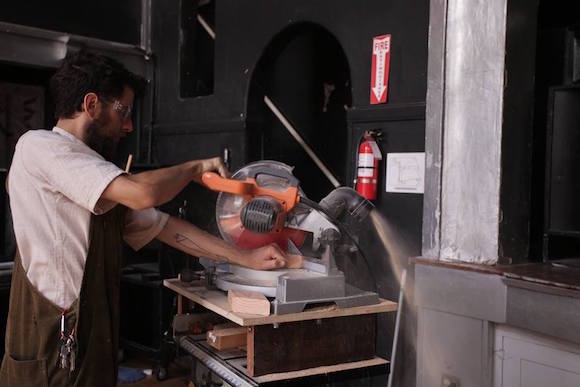 Matt Senate constructing the sound wall for Omni
Matt Senate constructing the sound wall for Omni
What are the most important ways you feel Omni serves the community?
If you’re referring to ‘Omni’ as the sum of its member collectives, the public benefits broadly include, but are not limited to: 1.) providing food to the hungry, 2.) open and shared artistic, technical and scientific knowledge, projects, tools, 3.) empowering and centering the perspectives of the voiceless and oppressed, 4.) fighting against oppressive policies and regimes, 5.) collaborative learning and workshops in an inclusive environment, 6.) providing infrastructure support, creative resources and human power to aligned groups and movements.
If you’re referring to ‘Omni’ as a philosophical idea, I’d say it’s a model of a potential alternative organizing modality that’s actively and practically experimenting with people-powered, Do-It-Together collaboration technologies. It rejects the exploitative self-interest of state and market forces.
At its heart, it’s an experiment in new ways of being together and building relationships rooted in reciprocity and mutual aid. See also: “What is this place?”
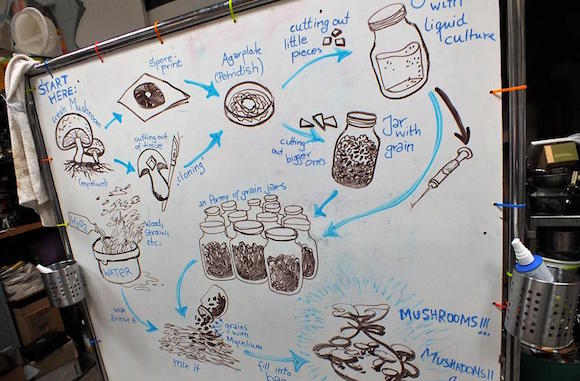 Mushroom board (Photo by Bay Area Applied Mycology)
Mushroom board (Photo by Bay Area Applied Mycology)
How has its members and mission changed over time?
The mission hasn’t changed, but perhaps the focus is now starting to shift from “oh shit, we’re out of money” to “how can we make long-term improvements?” The start of the Omni sucked an incredible amount of energy from the already-established collectives, especially BAPS and Sudo Room, to the detriment of those groups. However, as the project has matured, other groups have joined, both as a result of directed outreach efforts, as well as by happy accidents, and that’s helped.
The community is enriched by the experiential wisdom of elder activist groups such as Global Women’s Strike, Chiapas Support Committee, and Food Not Bombs and rejuvenated by the creative energy and diversity of groups working directly with youth and other marginalized communities such as Liberated Lens, Phat Beets, Art Bison Design Co-op and Global Communications. Each group has something valuable and unique to share with the others—a range of shared resources, experiential wisdom, tangible skills, and pure blood, sweat & tears.
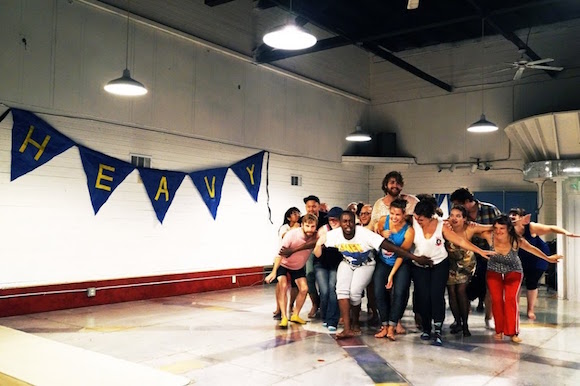 Heavy Breathing movement workshop, 2015
Heavy Breathing movement workshop, 2015
How do you hope to further grow and support the community?
Our capacity to do outreach has historically been limited by the more urgent needs of fundraising, finance, event management, building and maintenance efforts. We receive on average 32 new event requests each month. While the number of active member collectives is relatively small, dozens if not hundreds of groups in the Bay Area have utilized the space since we signed the lease in July of 2014. We’re currently struggling to repay community loans and get back in the black, but we still have 6 months (at least) until that becomes a viable possibility.
It has always been a goal to have a cooperative business stewarding the Entrance Hall that can also serve as a public face of the project as a whole. It’s no simple matter to hold down the front door of a building as large and diverse as Omni. We’re always excited to work with potential new member collectives and expand the scope and diversity of voices that guide the future of the project. It’s important to note that the spirit of the Omni is one of openness, and that “membership” in the Omni is more a social contract with a group willing to take part in the responsibilities of shared stewardship of the Commons than it is a granting of rights and privileges.
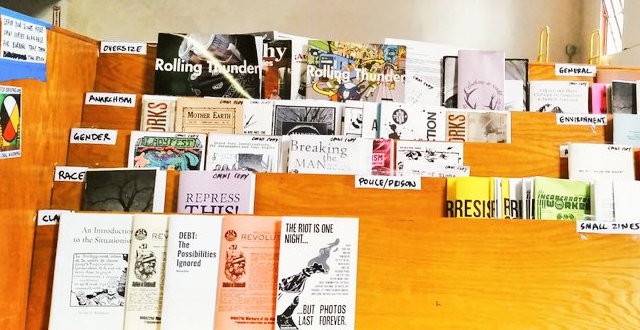
Omni Commons (4799 Shattuck Avenue, Oakland)
Find a calendar of their upcoming events, more information about member collectives and how to become involved. You can also visit their Patreon page to make a donation.


